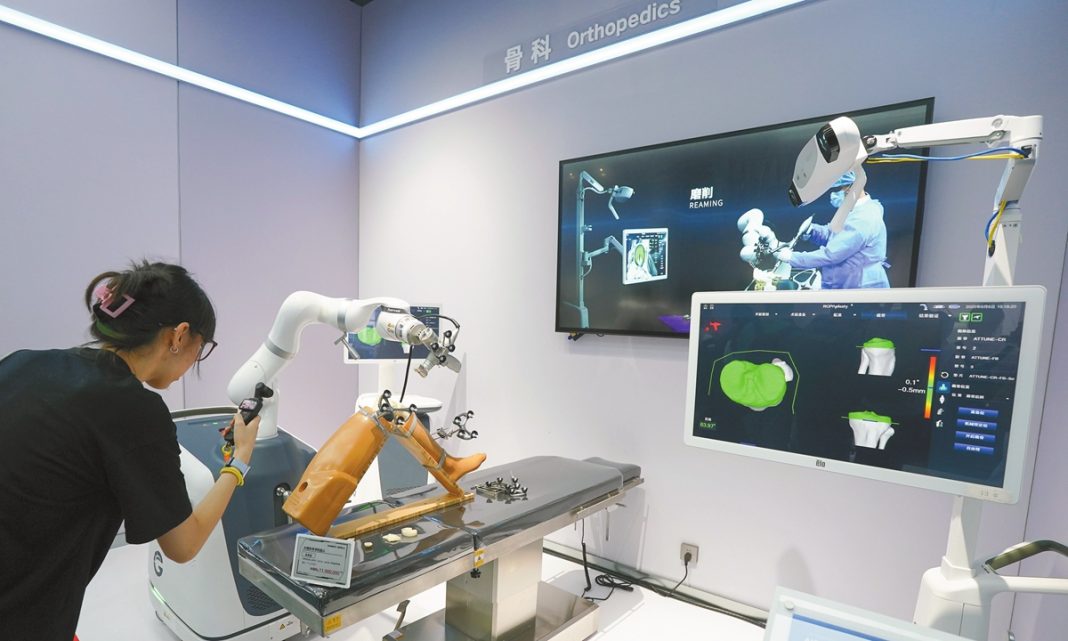BEIJING: In 2025, China’s intelligent computing power is expected to grow by over 40 percent on a yearly basis, according to industry forecast released at the 2025 China Computing Power Conference, which concluded on Sunday. Industry practitioners said the demand for intelligent computing power is surging, fueled by rapid artificial intelligence (AI) advancements in the country.
Analysts said China’s computing power industry is entering a new stage of high-quality and large-scale development. The projected 40 percent growth in intelligent computing power in 2025 signifies rapid progress in AI capabilities, supporting innovation across industries. It also highlighted China’s focus on advancing AI technology to boost economic competitiveness, scientific research, and digital transformation, they said.
As the foundation of AI advancement, computing power is a key arena in the global race for technological advancement, with China surging forward at an extraordinary pace, Zhang Xiaorong, director of the Beijing-based Cutting-Edge Technology Research Institute, told the Global Times on Sunday.
Broadly understood as the capacity to process data, computing power encompasses infrastructure and technologies that enable data computation, storage, and network capabilities in the digital economy, according to Zhang.
“The surge in the scale of computing power means that a significant shift is unfolding: AI is no longer limited to research labs or city centers but is swiftly spreading across Chinese society. Driving this AI transformation is a critical yet often unseen force: computing power,” said Zhang.
Data from the conference, held from Friday to Sunday, showed that China’s total computing power has grown at an annual rate of about 30 percent, according to a report by CCTV News on Sunday.
By the end of June, China’s total computing power ranked second worldwide, Liu Liehong, head of the National Data Administration (NDA), told a press conference on August 14.
Xiong Jijun, deputy minister of industry and information technology, said at the computing power conference that as of June 2025, China’s intelligent computing power reached 788 EFLOPS (indicates system speed, equals one quintillion floating-point calculations per second).
This represented significant increase in the scale of intelligent computing power, which stood at 90 EFLOPS by the end of 2024. Intelligent computing power accounted for 32 percent of China’s total computing capacity of 280 EFLOPS in 2024, according to data from the NDA released in April.
The rising demand of computing power partly came from an increasingly expanding scope of applications in China. So far, intelligent computing applications span generative AI models, autonomous driving, low-altitude economy, embodied intelligence, smart cities, and industrial manufacturing, Wang Peng, associate research fellow at the Beijing Academy of Social Sciences, told the Global Times on Sunday.
Over 23,000 innovative computing projects have been collected through computing power application competitions, with large-scale adoption in industries such as finance, healthcare, and energy, according to CCTV News, citing information released at the computing power conference.
“These innovative projects demonstrated China’s commitment to leveraging intelligent computing for high-quality development. And the potential for intelligent computing power is vast, particularly in areas such as healthcare, education, and agriculture,” said Wang.
For example, in healthcare, AI-driven medical imaging accelerates accurate diagnoses, assisting doctors effectively, Wang said.
“In education, personalized learning systems customize content based on student progress, while VR and AR create immersive learning environments, both requiring robust computing support. In agriculture, precision farming integrates diverse data for optimized planting, and agricultural robots rely on intelligent computing for tasks like harvesting, driving significant demand,” Wang said. –The Daily Mail-Global Times news exchange item





